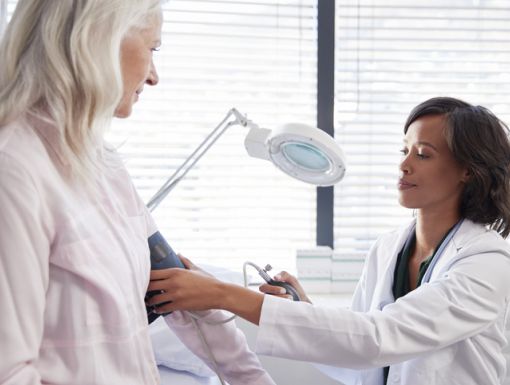
What is Premature Menopause?
Premature menopause is menopause that happens before the age of 40. On average, a woman goes into menopause in her early 50s, so going into menopause before the age of 40 is rare. In fact, premature menopause typically affects 1% of women under age 40, and the cause for this phenomenon is often unknown, but there are certain surgeries, medical or genetic conditions and chemotherapy agents that can cause early menopause. If you’re under the age of 40, how do you know if you’re experiencing early menopause?
The first symptom of menopause is several missed periods in a row. If a woman misses her period for 12 consecutive months, she is considered to have entered menopause. If you miss your period for several months, but then you finally have a period, you are not entering menopause. However, you may have other underlying health issues and should visit your doctor.
In addition to a missed period, common symptoms of menopause include:
- Periods that happen very close together
- Periods that last more than one week
- Period returns after no bleeding for more than a year
- Heavy bleeding
- Spotting (light vaginal bleeding that happens outside of regular periods)
- Hot flashes. A hot flash is a sudden heat in your body. You may feel it in your face and neck or all over your body.
- Vaginal dryness, which can lead to uncomfortable sex
- Bladder control issues
- Trouble falling asleep or waking up too early
- Changes in your sex drive
- Mood changes and irritation
- Tiredness
- Changes in your body such as weight gain or weight loss
- Increased frequency of headaches
Menopause symptoms typically disappear after four or five years after your last cycle, but you may continue to experience some mild symptoms (such as hot flashes) after other symptoms have stopped. If you enter menopause early, you will have issues with infertility. However, it is may be possible for a woman in early menopause to still become pregnant with fertility treatment.
Increased Health Risks and Treatment
Menopause comes with an increase in other health problems, including bladder control issues, oral health issues, heart disease and a risk of osteoporosis. For women who enter menopause prematurely, there are additional risks, including early death, neurological diseases, psychiatric diseases and infertility. Hormone therapy may help reduce the risks of these problems.
Women in menopause should still get regular checkups, including mammograms, Pap tests and other regular examinations. You should also continue to eat foods high in vitamins, minerals, fiber and other essential nutrients and continue to practice safe sex to protect against sexually transmitted diseases.
If you’re having symptoms commonly associated with menopause, and if you are concerned that you may be entering premature menopause, consult a health professional for treatment and guidance.



